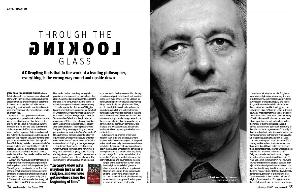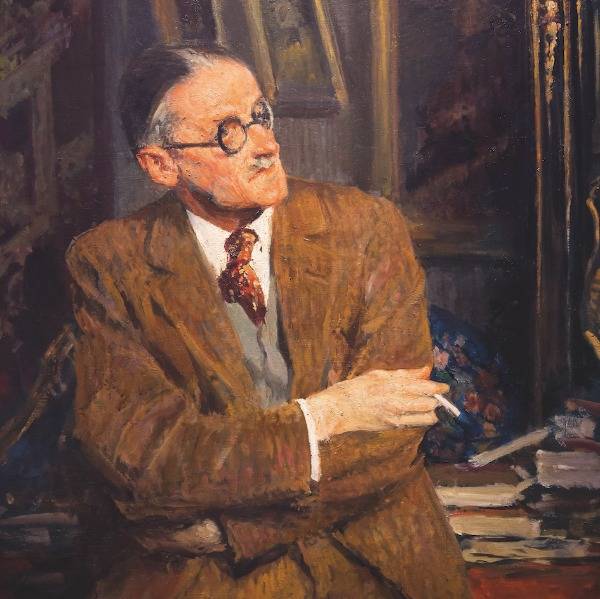John Gray is a curious figure whose habitual assaults on humanism are all carried along with such breezy assertion and generalisation that his underlying bitter pessimism is cloaked in motley. For he’s a Harlequin: everything is either black or white in his writings, and moreover when it is black it is white, and vice versa.
 In his latest book, aptly titled Black Mass, things are appropriately dark. It tells us that the world is in a bad way and that there is nothing we can do about it. Perhaps we can infer from this that his aim is to keep us informed of the true state of affairs, so that we have a reason to feel depressed if depressed we feel. In a nutshell the book consists in the repeated assertion that modern secularist thinking is utopian in aspiration, has inherited this aspiration from Christianity, has failed because its belief in progress is false and has in fact been violently regressive. The only thing that will replace it is more apocalyptic religion-inspired conflict, and – this with an Eeyore relish – all is therefore doom and gloom.
In his latest book, aptly titled Black Mass, things are appropriately dark. It tells us that the world is in a bad way and that there is nothing we can do about it. Perhaps we can infer from this that his aim is to keep us informed of the true state of affairs, so that we have a reason to feel depressed if depressed we feel. In a nutshell the book consists in the repeated assertion that modern secularist thinking is utopian in aspiration, has inherited this aspiration from Christianity, has failed because its belief in progress is false and has in fact been violently regressive. The only thing that will replace it is more apocalyptic religion-inspired conflict, and – this with an Eeyore relish – all is therefore doom and gloom.
Actually one must suppose that there are further points than mere iteration of pessimism and negativism, which is Gray’s preferred (see Straw Dogs) and here iterated pose. The chief of them is that he is against the progressivist ambitions of the secular Enlightenment, and he hopes to annoy its proponents by giving it Christianity for a father and – that weary old canard – Nazism and Stalinism for offspring. His case for this is so massively wrong in its premises and so contradictory in its details that, alas, I should need as much paper to correct the mistakes as he consumes in making them. So what follows goes to certain main points only.
In order to establish that secular Whiggish Enlightenment-derived aspirations are the child of Christianity, Gray begins by calling any view or outlook a “religion”. Everything is a religion: Torquemada’s Catholicism, the pluralism and empiricism of 18th-century philosophers, liberalism, Stalinism. He speaks of “secular religion” and “political religion”. This empties the word “religion” of any meaning, making it a neutral portmanteau expression like “view” or “outlook”. He can therefore premise a gigantic fallacy of equivocation, and assimilate secular Enlightenment values to the Christian “narrative” of reformation aimed at bringing about a golden age.
For starters this misreads Christianity, for which truths are eternal and the narrative is a very short story indeed (obey, get to heaven; disobey, do not get to heaven); but more to the point, it utterly misreads the secular view. The secular view is a true narrative of incremental improvement in the human condition through education and political action. Gray thinks that such a view must of necessity be utopian, as if everyone simplistically thought that making things better (in dentistry, in the rule of law, in child health, in international mechanisms for reducing conflict, and so forth for many things) absolutely had to be aimed at realising an ideal golden age to have any meaning. But it does not: trying to make things better is not the same as believing that they can be made perfect. That is a point Gray completely fails to grasp, and it vitiates his case. Since that is so, the point bears repeating: meliorism is not perfectibilism.
But in making a nonsense of the word “religion” Gray blurs and blends just where important distinctions are required. A religion is a view which essentially premises commitment to belief in the existence of supernatural agencies in the universe, almost always conceived as having intentions and expectations regarding human beings. Such is the myth derived from humankind’s infancy, a myth that survives for both institutional and psychological reasons, largely to the detriment of human affairs. Most religions, especially if given the chance, share the totalitarian impulses of Stalinism and Nazism (think Torquemada and the Taliban) for a simple reason: all such are monolithic ideologies demanding subservience to a supposed ideal, on pain of punishment for non-conformity.
Now let us ask whether secular Enlightenment values of pluralism, democracy, the rule of independently and impartially administered law, freedom of thought, enquiry and expression, and liberty of the individual conform to the model of a monolithic ideology such as Catholicism, Islam or Stalinism. Let us further ask how Gray imagines that these values are direct inheritances from Christianity – the Christianity of the Inquisition, which burned to death any who sought to assert just such values. Indeed, the history of the modern European and Europe-derived world is precisely the history of liberation from the hegemony of Christianity. I shall be so bold as to refer the reader to the case for this claim in my forthcoming (Autumn 2007) full-length discussion of it, Towards the Light.
As to the weary old canard about the 20th-century totalitarianisms: it astonishes me how those who should know better can fail to see them as quintessentially counter-Enlightenment projects, and ones which the rest of the Enlightenment-derived world would not put up with and therefore defeated: Nazism in 17 years and Soviet communism in 70. They were counter-Enlightenment projects because they rejected the idea of pluralism and its concomitant liberties of thought and the person, and in the time-honoured unEnlightened way forcibly demanded submission to a monolithic ideal. They even used the forms and techniques of religion, from the notion of thought-crime to the embalming of saints in mausoleums (Lenin and Mao, like any number of saints and their relics, invite pilgrimage to their glass cases). Totalitarianism is not about progress but stasis; it is not about realising a golden age but coercively sustaining the myth of one. This indeed is the lineament of religion: it is the opposite of secular progressivism.
Most of what was achieved in the history of the West from the 16th century onwards – most notably science and the realisation of the values listed above – was wrested from the bitter reactionary grip of religion inch by painful and frequently bloody inch. How can Gray so far ignore this bald fact of history as to make the modern secular West the inheritor of the ideals and aspirations of what it fought so hard to free itself from (and is still bedevilled by)? His accordingly is a bizarre fantasy-version of history. In the face of the central heating that warms him, the modern dentistry that allows him to chew his peanuts, the computer he writes his strange books on and the aeroplanes he travels in, he asserts that “progress is a myth”. But perhaps he does not mean to call material progress a myth, but rather alleged progress in the political condition of a large portion of mankind. Does he thus mean that the movement from feudal baronies to universal suffrage and independent judiciaries is not progress? If it is not, what is it? Regress?
When Gray writes, “The Bolshevik and Nazi seizures of power were faith-based upheavals just as much as the Ayatollah Khomeini’s theocratic insurrection…The very idea of revolution as a transforming event in history is owed to religion…”, this lumping exactly where splitting is necessary for clarity allows him to argue a spectacular circle: the “secular religions” arose from religion, have failed and were inevitably violent because they were based on myths of progress that required coercion to get people to conform, and now the only thing that can and will take their place is “the violence of faith”. (The violence of the religious religions, I suppose we have to call them now that our linguistic resources have become de-Gray-ded.) So in Gray’s view all is mayhem just as all is religion, and we have got nowhere since the beginning of time.
As this short book progresses it transpires that it is really a padded-out essay on the Iraq war and why the Bush project of spreading democracy by bullet is failing. This is hardly news, and it does not require an upside-down version of modern western history to make it. Bush’s view of the world is a counter-Enlightenment one in its inspirations; the war in Iraq is a replay of an old story that most people in the rest of the world (has Gray not noticed?) disapprove of profoundly.
Were there space enough and time here, there are scores of points that require what bloggers call “Fisking” – debunking and correction. One example is Gray’s claim that Christianity introduced the concept of teleology into Western thought. Hello? What of Aristotle’s priority here? Another is his assertion that a 12th-century abbot called Joachim of Flora introduced the idea of the tripartite structure of human history. Hello? What about the classical Greek, the ancient Indian, the more than 200 worldwide versions of the myth of “ages of mankind” catalogued by historian Giorgio di Santillana? And so on for dozens more instances of baldly stated error.
One thing that cannot be let go by is Gray’s backhanded defence of religion as “at its best … an attempt to deal with mystery rather than the hope that mystery will be unveiled”, and regrets that “this civilising perception” (one gasps) has been lost in the current clash of fundamentalisms. This painfully vague excuse for one of the worst toxins poisoning human affairs will not do: invocation of mystery has been more a potent excuse for evil than a service to the greater good.
I found one thing almost to agree with: Gray says that politics “at its best” should not be thought of as a utopian endeavour but as a way of managing circumstances. Yes: and, with good and sensible intentions, to improve them where possible. This last bit is the one that Gray seems to suggest is impossible. Thankfully few but the most depressed share that view. ■
Read Laurie Taylor's interview with John Gray for New Humanist

